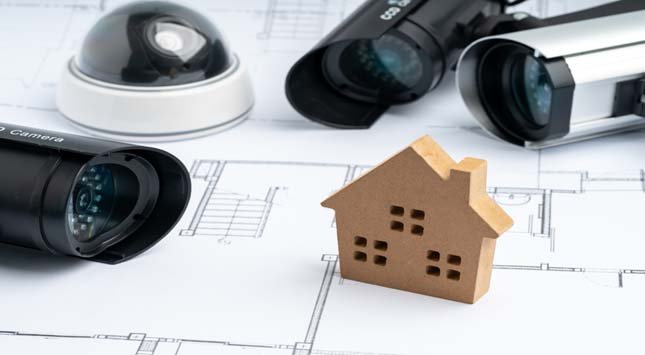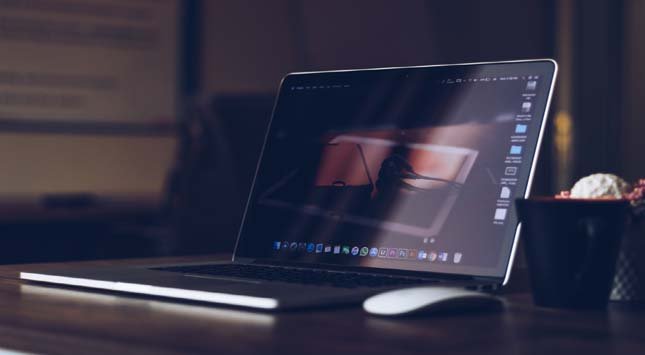Theft – albeit classified as a petty crime – can be devastating for the victim, but unfortunately, it’s not uncommon for a person or a business to be a victim of it. Theft has evolved in the sense that although it’s always been a horrible thing to be a victim of, it’s getting worse.
Some years ago, thieves would enter a property looking for items like TVs, phones, jewelry, and other items they might be able to sell for money. Except for jewelry, previously highly stolen items now tend to be moderately priced and can be purchased brand new for a reasonable amount, so the demand for such products has diminished.
Instead, personal data is much more valuable, so thieves have begun targeting properties in the hope of finding credit cards, passports, and personal data that they can sell. This is a much more serious form of theft because of the long-term implications, and that’s why it’s now more important than ever to invest in security equipment, but with so much choice, knowing what to buy is no mean feat.
If you’re (very rightly) thinking about buying security equipment for your property – be it commercial or residential – here are some of the things you’ll need to consider.
What are You Protecting?
What you intend on securing will play a huge part in terms of determining what type of security equipment you need to buy. Security for the home tends to be more basic than retail security because although sentimental items are kept in the home, they don’t tend to be worth as much money as items that are kept in business premises.
That’s not to say it’s not important to secure your home; it just means that there’s likely to be less for you to protect compared to a commercial property, and the security system you opt for needs to reflect this.
Workplaces and retail premises are targets for theft because they either contain large quantities of cash, expensive/specialised equipment, or personal information relating to customers and/or employees who work there. There is likely to be more damage inflicted on a larger number of people if a commercial property is targeted compared to a residential property, and as a result, the security system should be more advanced.
Overall, when it comes to what you’re protecting, the higher the value and the more high stakes the risk, the better the security system needs to be. If you’re protecting your personal belongings and the car on your driveway, a single alarm and CCTV camera should suffice, whereas a uniformed security guard and floodlights will be overkill.
In contrast, if you’re protecting security premises, a basic alarm and solitary camera probably won’t be enough; you’ll want a safe for personal documents, potentially lockable bars on windows and doors to make taking equipment difficult, and – provided the premises could benefit from it – floodlights and manned security will be sufficient.
How Big of an Area Are You Protecting?
The size of the property you’re protecting will largely dictate the type of security you need to invest in. The bigger the property, the more security you need. A mid-terrace house with one front door and two front windows (one upstairs and one downstairs) won’t need more than one front-facing camera and one alarm. In comparison, a 3,000 sq/ft commercial warehouse will require more cameras – both inside and out – a more elaborate security system and floodlights around the perimeter.
As a general rule of thumb, the bigger the area, the more security you need. A good option is for every door, to have a camera. Dome cameras are a great option for commercial properties because they’re discrete and harder to vandalize.
They also tend to rotate which makes it difficult for thieves to know where the camera is pointing, and they can’t knock it off or re-direct it like they can with regular bullet cameras. That being said, there’s nothing wrong with bullet cameras for home use because they’re affordable and more than capable of securing your home.
What is Your Budget?

This is, for some people, the deciding factor for the type of security system they choose to buy, and whilst it needs to be a definite consideration, it shouldn’t be the primary thing that sways your opinion on what to buy.
Of course, some security is better than no security so if your budget is squeezed, it’s better to have some degree of security equipment rather than none at all, but it’s not as cost-effective as you might think. A security alarm/camera system can be picked up fairly cheaply, but depending on the property you’re securing and what exactly inside of it you need to secure, the cheapest option might not necessarily be the best option.
When you buy something for cheap, you run the risk of it not being particularly long-lasting and it might need replacing shortly after buying it. The cost of two of the cheap items could well exceed the initial cost of the more extensive alternative, making it more cost-efficient to save up for the better option off the bat.
Another thing you will need to weigh up in terms of budget is whether or not the cost of not having any security is worth the risk of what could potentially be lost if you were to be burgled. Odds are, the price of what could be lost far exceeds the initial outlay of buying a security system. Should the worst happen, having spent money on a security system will pay off.
A lot of security equipment providers offer finance options that make buying equipment easier on your bank balance as the cost is spread, so despite the seemingly high upfront costs, you might not need to fork that much out initially, so if that’s your concern, it’s worth shopping around different providers to find out if they offer reasonable payment plans.
Conclusion
Buying security equipment is not easy, but once you know what you’re securing, how big the area is, and what your budget is, it should make the decision easier and allow you to protect what you love most more effectively.






